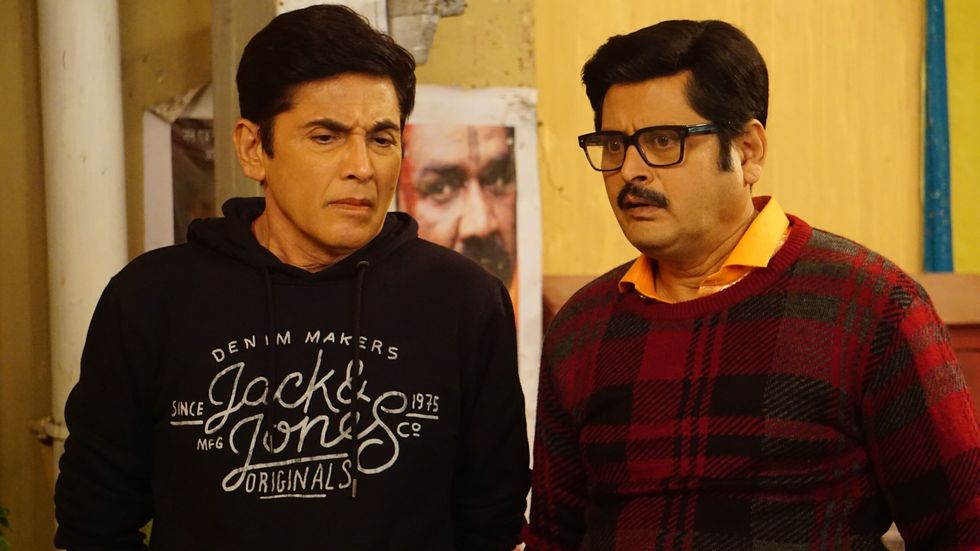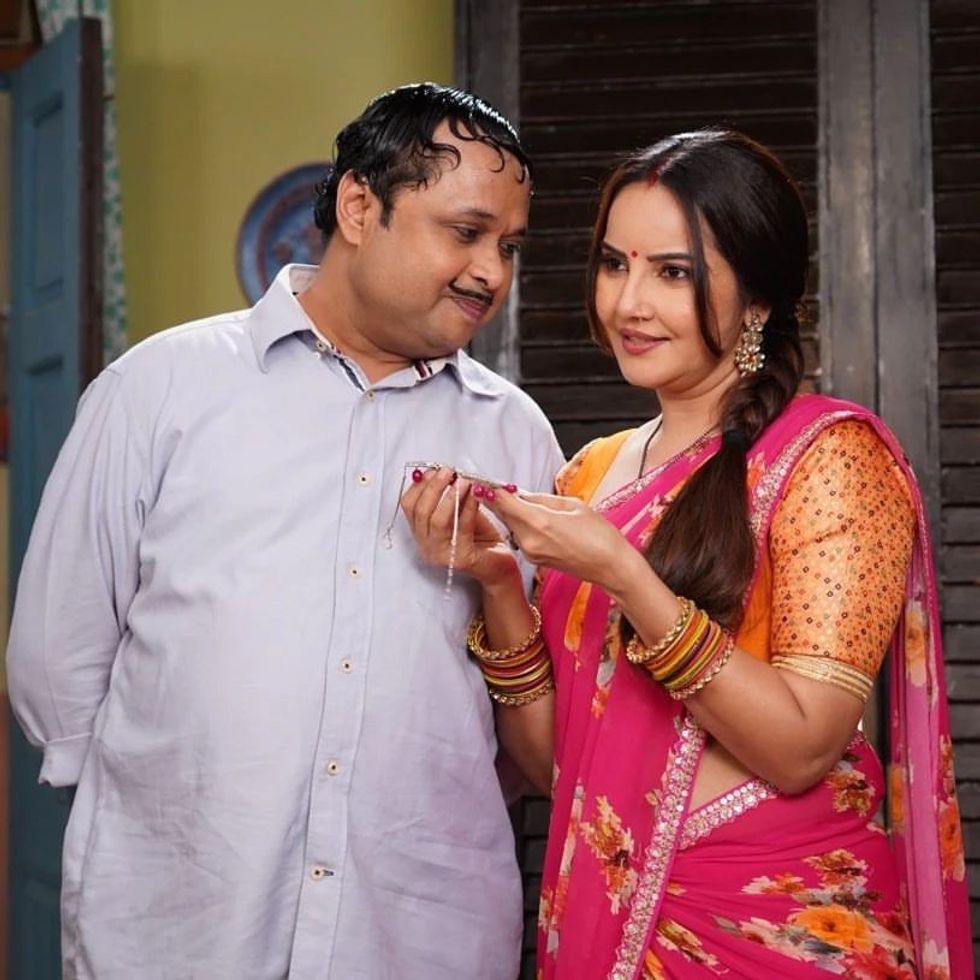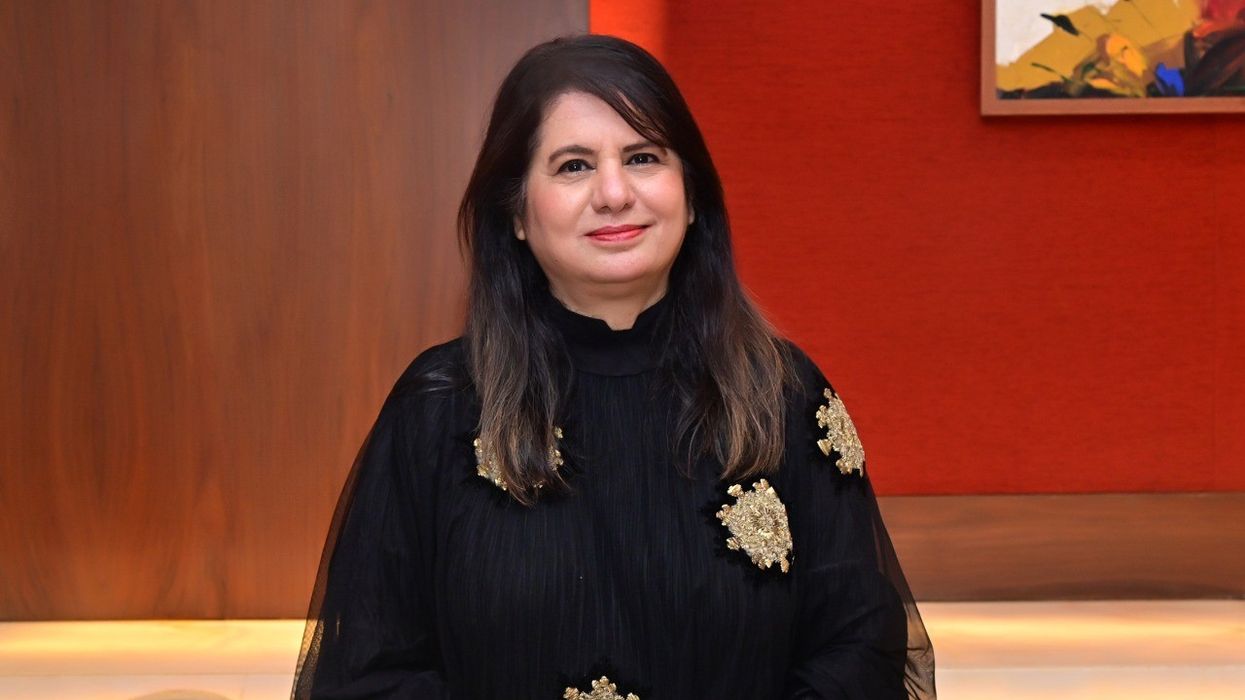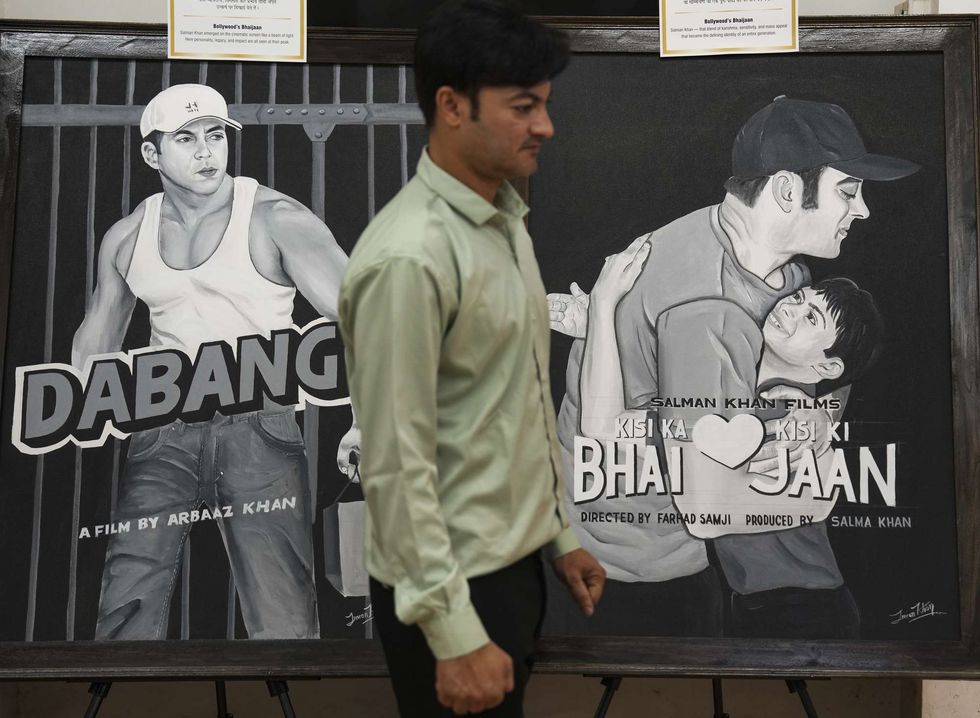INDIAN television has turned into a multi-billion pound industry thanks to creative minds constantly coming up with mass audience connecting ideas.
This top TV industry talent includes the terrific team of Binaiferr and Sanjay Kohli of Edit II Production. Their biggest successes include super-hit sitcoms Bhabiji Ghar Par Hain and Happu Ki Ultan Paltan, which have collectively crossed an astonishing 3300 episodes between them. The iconic shows, along with other work, have firmly established the husband and wife duo as important power players.
Eastern Eye caught up with Binaiferr to discuss her successful journey as a big thinking producer, the hit shows and Indian television.
How do you reflect on your journey as a producer?
Reflecting on my journey as a producer, I find it to be both challenging and incredibly rewarding. I've never been overly attached to my concepts, but I feel a deep sense of emotion when one of my shows comes to an end. To me, these shows are like my babies. Sanjay and I pour our hearts and souls into them every day.
Tell us about that?
We constantly think about how to make our ‘baby’ better, just like a parent thinks about what clothes to dress their child in or how to keep them healthy. In our case, it’s about finding new ideas to improve the show, ensuring it looks its best, and presenting it in a way that's easily understandable to our audience. It’s a labour of love and dedication.
Did you ever imagine becoming so successful when you started?
Yes, when I first started, I had imagined achieving success, and now, I believe that we are on the path to even greater success.
How has television changed since you started?
Television has changed since I began my journey. This change has happened because, over time, the issues, humour, and life experiences that people have witnessed throughout their lives have also transformed. As time goes on, circumstances change, and this has led to changes in what we see on television.
Why do you think Bhabiji Ghar Par Hain is so popular?
Bhabiji Ji Ghar Par Hain is incredibly popular because it's a delightful mix of fun and craziness. It has become iconic and provides a lot of enjoyment. The entire team, from Manoj and Raghu to the director Shashank and the creative producer (my husband) Sanjay Kohli works tirelessly, along with the actors and the cameramen. Every single person on the team plays a crucial role in its success.

Did you expect the show to run for this long, for over eight years and more than 2,100 episodes?
I did anticipate it would run for this long and expect it to continue running for an even longer time.
What do you most love about the show?
I absolutely adore every aspect of the show and have a special fondness for the catchphrase sahi pakde hai.
What has been the secret of Happu Ki Ultan Paltan’s success, which has crossed over 1,100 episodes?
Happu Ki Ultan Paltan is a spin-off of Bhabiji Ji Ghar Par Hai. Once again, the secret to its success lies in good writing, a solid concept, a variety of engaging storylines, innovative ideas, excellent acting, and overall excellence in all aspects.
What are the fondest memories of your show May I Come in Madam?
Some of my fondest memories revolve around the casting process, particularly how quick and unique it was. Our show is unlike any other, with its quirky and distinct style. I remember casting Sandeep Anand and Nehha Pendse, and the interesting way I discovered Neha, almost by chance, in a furnishing shop.

What is the secret of sustaining a long running show?
The secret of a long running show is innovation, hard work and creativity.
What is the plan going forward?
The plan going forward is making movies. It's in an advanced stage – some movies are planned and a web series.
What kind of TV shows do you enjoy watching the most?
I enjoy watching all kinds of shows, especially comedies and soaps. I love all the comedies that we make.
Why do you love creativity?
We have a deep passion for our work, and it's like being a creative artist who starts with a blank canvas and gradually creates something beautiful, continually refining it until it’s better and better. My husband Sanjay is rightfully known as ‘the king of comedy’ because of his exceptional creativity, and his team is equally brilliant.
Comedy is a different challenge compared to writing soaps. Why is that?
Creating one episode of comedy is as demanding as producing five episodes of a soap. Our entire team, from the writers and directors to the production crew, the producer, actors, cameramen, makeup and hair, spot and light teams, all contribute to our success, and they are truly fantastic.






 A visitor at an art exhibition titled 'Jashn-e-Saliman', showcasing the legacy of screenwriter Salim Khan and his son and Bollywood actor Salman Khan, on the eve of the latter's 60th birthday, in Mumbai, Friday, Dec. 26, 2025. (PTI Photo/Shashank Parade)
A visitor at an art exhibition titled 'Jashn-e-Saliman', showcasing the legacy of screenwriter Salim Khan and his son and Bollywood actor Salman Khan, on the eve of the latter's 60th birthday, in Mumbai, Friday, Dec. 26, 2025. (PTI Photo/Shashank Parade)





